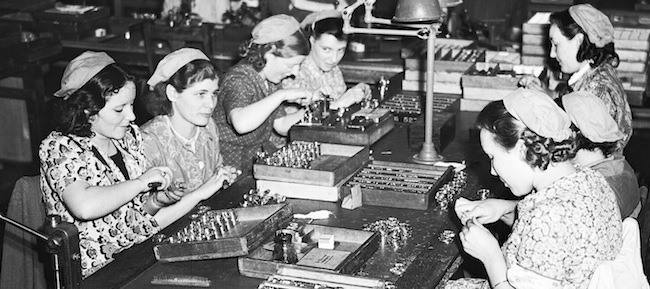Oh woes, the UK doesn’t make anything any more! Good – we’re winning
THE UK does not make anything any more. This isn’t, in fact, quite true. UK manufacturing output peaked in 2005: yes, really, manufacturing output was higher whan Maggie left office than when she entered, when Major left office than he entered.
What has fallen is manufacturing employment and this is a good thing. It’s happening because of rising productivity: we can now make more things with less labour.
So, what then happens? Well, that labour is then free to go off and do other things. This makes us richer because we now have both the manufacturing and whatever it is that is created by that newly freed labour.
Like, perhaps, this:
ARM, the eponymous designer of the chip architecture, had a stonking 2011 with revenue and profits up as it tightened its hold on both embedded and generic computing.
Revenue for the last quarter of 2011 was up by more than 20 per cent on the previous year, to £137.8m, while profit before tax jumped more than twice that percentage to £69m. For the whole of 2011 the numbers are very similar, revenue hitting £491.8m ($773m) and profit topping £229.7m ($362m), rather better than analysts had predicted.
ARM doesn’t in fact make anything at all: they just design things. And what they design goes into every smartphone, every tablet computer and a myriad other devices (modern car engines usually contain a couple too).
To actually make the chips you need a silicon fab: they cost $6 to $ 8 billion each, are worth using for perhaps a decade and then you have to throw them away and start again. And such fabs employ three men and a dog anyway.
We in the UK are getting to do the high value, high pay stuff: actually designing the circuits. And that’s much more fun and much better paid than hammering out whippet flanges.
Image: Female workers in a British armament factory, somewhere in England, May 26, 1940, working on their Sunday off. Workers all over Britain have been working twelve hours a day and seven days a week in response to an appeal by the Minister of Supply, Herbert Morrison, to increase productivity.
Posted: 1st, February 2012 | In: Money Comments (3) | TrackBack | Permalink



